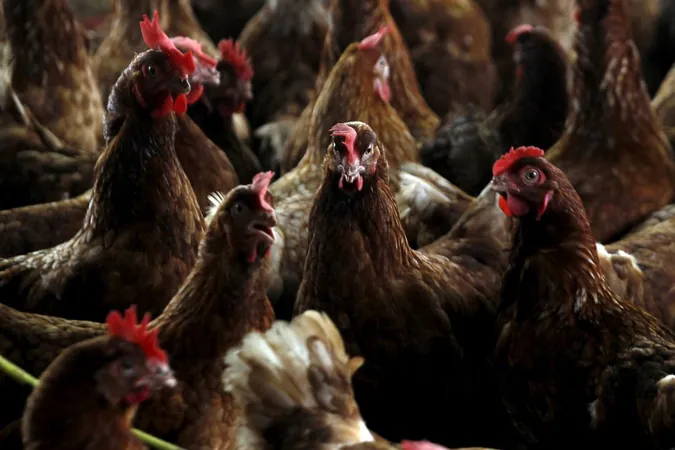
Urgent Call for Enhanced Bird Flu Control Measures Following First U.S. Death
2025-01-08
Author: Siti
Introduction
In a stark warning following the first reported bird flu-related death in the United States, the World Organisation for Animal Health (WOAH) has emphasized the crucial need for stricter controls on the spread of avian influenza. The announcement, made on January 8, highlights a growing concern over the virus's potential to threaten not just animal health, but also human populations.
Global Impact of Avian Influenza
Avian influenza has been wreaking havoc globally, significantly affecting poultry flocks, driving up food prices, and generating alarm about the risk of a new pandemic. This recent incident underscores the urgency to address the virus at its source—among animals.
Importance of Risk Management
WOAH Director General Emmanuelle Soubeyran stressed the importance of managing the risk posed by avian influenza. 'This situation really highlights the importance of managing risk at the animal source,' she stated, emphasizing that rigorous monitoring of infected species is essential to prevent further transmission to humans.
Concerns About Human Infections
The outbreak, unprecedented in its global reach and impact on a variety of animals—including dairy cattle in the U.S.—has raised alarms among health organizations and governments alike. Soubeyran pointed out that an absence of awareness and vigilance could lead to increased human infections.
The Threat of Mutation
'If there is a lack of awareness of the situation, people are more likely to become infected, and the virus will be able to circulate between poultry, pigs, cows, and wild animals. This is where a mutation of the virus could occur, potentially setting the stage for a broader pandemic,' she warned.
Transmission Pathways
Bird flu is typically carried by migrating wild birds, but it can be transmitted to farmed birds and, on occasion, to humans, primarily those working closely with livestock.
Call for Vaccination
In efforts to combat this issue, Soubeyran has reiterated the need for vaccination as a key measure alongside conventional control strategies. 'If used correctly, vaccination will significantly reduce viral circulation and thus human exposure,' she noted.
Hesitations Among Exporting Countries
However, apprehensions linger among major exporting countries, with many—excluding France—hesitant to implement vaccination protocols. Their hesitation is primarily driven by fears of international repercussions, such as trade restrictions, which could label them as having a serious outbreak.
Conclusion
As we stand at this critical juncture, the call for action grows louder. The need for enhanced surveillance, better veterinary practices, and the timely implementation of vaccination can not only protect our livestock but ultimately safeguard human health from the looming threat of avian influenza. The world must pay attention— the threat is real, and the consequences could be dire if we fail to act decisively.




 Brasil (PT)
Brasil (PT)
 Canada (EN)
Canada (EN)
 Chile (ES)
Chile (ES)
 Česko (CS)
Česko (CS)
 대한민국 (KO)
대한민국 (KO)
 España (ES)
España (ES)
 France (FR)
France (FR)
 Hong Kong (EN)
Hong Kong (EN)
 Italia (IT)
Italia (IT)
 日本 (JA)
日本 (JA)
 Magyarország (HU)
Magyarország (HU)
 Norge (NO)
Norge (NO)
 Polska (PL)
Polska (PL)
 Schweiz (DE)
Schweiz (DE)
 Singapore (EN)
Singapore (EN)
 Sverige (SV)
Sverige (SV)
 Suomi (FI)
Suomi (FI)
 Türkiye (TR)
Türkiye (TR)
 الإمارات العربية المتحدة (AR)
الإمارات العربية المتحدة (AR)